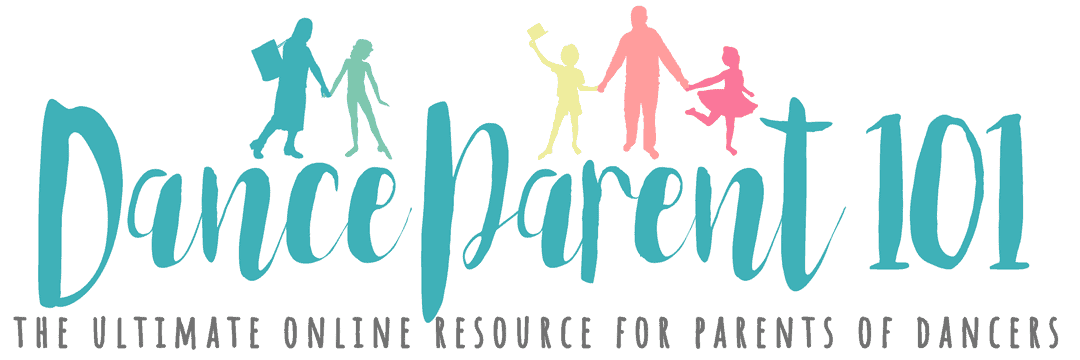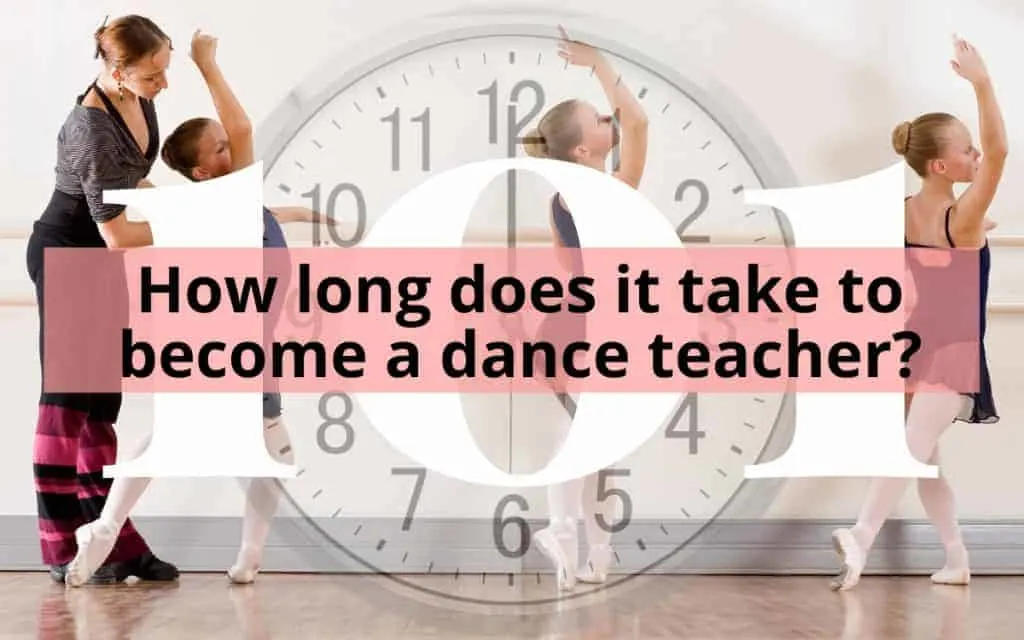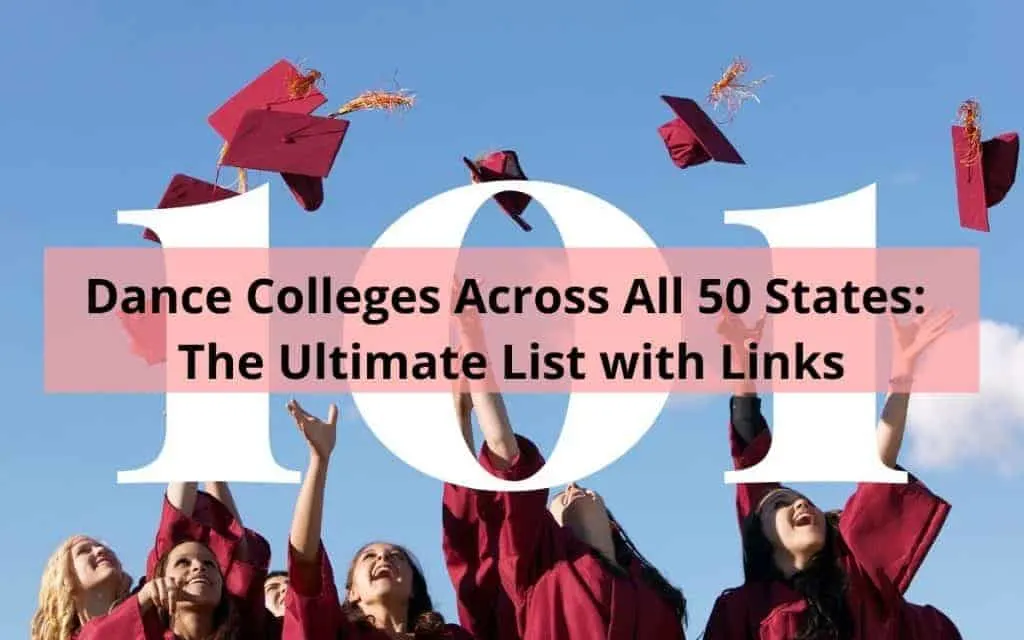
Becoming a dance teacher is a fulfilling career – I should know, I taught dance for many years in private studios and then many years later completed a Bachelor of Education and can teach not just dance but all subjects in K-6 schools. But how do you exactly become a dance teacher and what qualifications do you need?
What Qualifications Do I Need to be a Dance Teacher? To become a qualified dance teacher within a K-12 school you will generally need a degree and a teaching certificate or license from your state education board. To teach in a privately run studio you become qualified as you gain experience as a student of dance, as an assistant teacher, student-teacher, and teacher of beginner dance classes.
But it’s not as clear cut and easy as that as I will explain throughout the article as we look at the different qualifications and experiences you can obtain to become a dance teacher. But first, what duties does a dance teacher need to do that would require you to get a qualification or experience in the first place?
What are the duties of being a dancer teacher?
The following list is not exhaustive but is a long list of the many duties dance teachers need to be able to do.
Dance teachers need to:
- be experienced, knowledgeable and have a good understanding of the content they are teaching their students.
- have a good understanding of dance pedagogy and movement anatomy.
- ensure their students progress and learn to dance.
- know how to gradually increase the difficulty of what they are teaching to their students.
- assure that safe dance techniques are being practiced in their studio.
- look after the wellbeing of the students in their care during a lesson and never put themselves or their students at unnecessary risk.
- be attuned to the mental health of their students and know when they need to push a student to attain greater learning or to back off when a student is resistant.
- teach warm-up and cool-down exercises and routines that are in line with current teaching practices.
- be able to choreograph creative routines that apply what is being learned during class time.
- use positive and inclusive language when addressing their class.
- understand and know the difference between using constructive criticism rather than giving unhelpful opinions and judgments.
- be able to give helpful advice that their students can take action on in the classroom and at home to improve their dancing.
- are constantly updating their own skills by taking classes and attending courses that enhance their teaching and benefit their business and students.
- communicate well with their community of clients – not just their students, but also the parents and carers of their dancers.
- have a good understanding of how to run a business or are willing to learn how to run one.
- have stage production knowledge and enjoy costume design.
Qualifications for Dance Teachers
With such a long list of duties, and for the record the list is incomplete, there are many more responsibilities that could possibly be added to the list, it is no wonder that there are courses of study you can complete that can complement your journey into becoming a dance teacher. Having said that not all dance teachers become dance teachers by studying for a degree or certificate.
The following are all courses of study available currently at universities and colleges across America. You can check out our article Dance Colleges Across All 50 States: The Ultimate List with Links to find an institution and course near you.
Certificate
The Online Certificate in Dance Studio Management from the Western Michigan University in Kalamazoo, Michigan is an example of a qualification you can obtain to enhance your knowledge and skills as a dance teacher.
Community colleges that have dance programs sometimes also offer certificates in dance teaching. Many community colleges in California offer a dance teaching certificate and some examples can be found at Cypress College, Glendale Community College, and Fullerton College.
Bachelor’s Degree
A bachelor’s degree offers dancers the opportunity to study dance in-depth and to concentrate their learning through a major or minor in subjects that increase their knowledge and understanding of the teaching of dance. It can also offer them the opportunity to double major to learn other skills and knowledge such as in education, business, kinesiology or psychology.
An example of a degree aimed at benefitting dance teachers is the Bachelor of Science in Dance Private Studio Teaching offered at Minnesota State University in Mankato, Minnesota. Another is the Bachelor of Art with a concentration in Dance Studio Operations at Stockton University in Galloway, New Jersey.
When complemented with education studies many dance graduates are able to apply to their local education board for certification or a license to teach in their states K-12 education system.
Master’s Degree
A Masters is a graduate degree, meaning you will have already completed a bachelor’s degree first. An example of a Masters’s Degree for dance teachers is the MA in Dance (Studio & Related Studies) at Florida State University in Tallahassee where students can focus on a major such as dance administration, dance science or dance production design.
Dance Teaching Certificate or Diploma
Another qualification dance teachers can obtain is an actual dance teaching certificate or diploma. These are generally obtained through a process of examinations and assessments that follow a curriculum or syllabus of dance that a student has studied for many years out of formal schooling hours. These widely recognized programs and methods for learning dance and developing teachers such as the Royal Academy of Dance Syllabus, the Cecchetti Method or the British Ballet Organization Syllabus are taught all over the world and have accountable organizations who oversee and support dance teachers worldwide.
Quick Guide: Qualifications or Experience Needed to Become a Dance Teacher.
The following table is a quick guide explaining the qualifications required for various dance teaching positions. Please note that although formal qualifications are not required for many dance teaching jobs, it doesn’t mean they have no place in dance teaching education. The opposite is true as you will find out further on when I list the actual qualifications available to dance teachers today.
| Dance Teaching Position | Qualifications Required |
| Professional Modern/Ballet School or Company | Professional Experience |
| Pre Professional or Professional Dance Studio | Professional Experience |
| Dance Studio Owner Operator | Experience (As a business owner you may be required to obtain operating or other certificates as per your state or council requirements) |
| Local Dance School | Experience |
| Teacher of a Dance Curriculum or Syllabus | Teaching Certificate or Diploma as given by the Curriculum or Syllabus board or association for example Royal Academy of Ballet or Cecchetti Method for passing a teachers exam or assessment. |
| K-12 school | Bachelors Degree in education and dance Government Teaching Certification or License. You may also need a working with children or police check. |
| Community Centre | Experience (Depending on your local council you may need a working with children or police check, OH & S certificate or other qualifications to fulfill insurance obligations or local laws) |
Can you be a dance teacher without a qualification?
The simple answer is yes. Yes, in general – you can teach dance without a qualification.
But this does not mean you will not have to qualify to teach for example children or in a community centre under which your state or council may require you to have certain checks and certificates for child protection or OH & S for example.
Some states are also starting to regulate the dance industry and will not let a person register a dance studio or school as a business if the person registering the business is not qualified with a certificate or degree to teach dance – this however does not mean all the teachers in that studio need to have those same qualifications.
The answer is no you cannot teach without a qualification in an educational school – but in saying that you only need your education degree and not a dance degree – I know this for a fact having spoken with a Spanish teacher put in charge of the dance department at her school with no dance experience, but having to take on the role (with the prospect of future ongoing training in dance) to keep her job!
BUT THIS IS NOT THE QUESTION YOU SHOULD BE ASKING YOURSELF!!!
The question you need to know the answer to is: Will people want to pay me to teach dance if I am not qualified? Will students want to learn from me if I am not qualified? Am I employable as a dance teacher if I am not qualified? And lastly, do I really have the expertise to be a good dance teacher, prevent injuries in my students, develop proper technique and be confident in dance pedagogy (pronounced ped-uh-goh-jee which is a fancy word for understanding and knowing the best ways to teach and learn dance) without a qualification?
Now I also need you to understand that being qualified to teach and having a qualification are also two different things.
Being qualified to teach dance means that you are more experienced and knowledgable about the style of dance you are teaching than your students. For example, that could be as much experience as someone who has danced since they were young, was a teaching assistant and now teaches unsupervised or someone with as little as a year of dance under their belt who started hip hop lessons a year ago and is now teaching beginner classes.
Having a qualification means that an educational association or government organization of some type has determined that you are qualified to teach. For example, a dance teacher in a public school or a teacher in a private studio teaching a syllabus or curriculum of dance and preparing their students for examinations.
How do you become a Qualified Dance teacher?
So how do you become more experienced and knowledgeable than your students qualifying you to teach dance?
The first way is to be a student of dance. To take as many classes as you can over as many years as you can to develop your own skills and understandings of dance.
The next step is to take on a supervised teaching role. This might start out as being an assistant to your teacher or it might mean teaching beginner classes under your teacher’s supervision.
This experience then leads itself into you taking and teaching classes unsupervised at a beginner level, then moving up into teaching intermediate and then advanced classes.
From this point, you may feel competent enough to start working for other studios and employers or even want to open up your own studio. But in many cases, you may still feel under-qualified for the job or need some extra skills and this is where formal qualifications come in to help give you broader understanding and knowledge of what it takes to run a dance school, own a business or teach young children effectively.
How much do dance instructors make?
At the end of the day becoming a qualified dance instructor costs money, so you obviously want to ensure you are able to gain back your investment into your education, through the employment that, that education should provide.
How much you can earn as a dance teacher will depend on many factors including your experience and education but also on how hard you are willing to work. In our article How Much Do Dancers and Ballerinas Make? Salary/Earnings Guide which I update annually you can see that one studio owner and choreographer in an anonymous survey for Dance Magazine in 2018 submitted that they earned over $300,000 a year but that another studio owner only earnt $30,000.
What are the benefits of being a dance teacher?
For me personally one of the major benefits of teaching dance was working in an industry and career I loved and inspiring my students through my knowledge and passion to become the best dancers they could be. It also provided at the time a way to supplement my wages whilst I studied dance full-time and then when I began working towards a professional career. It was a creative outlet and I enjoyed choreographing routines for my students, attending competitions with my students and preparing for the recital. I was a young adult at the time and dance was my life and although I enjoyed teaching, my passion was in gaining a professional career and I had to give up most of my teaching work when I got my first long contract
Many of the girls I danced with as a child went on to open their own schools, inspired by our own dance teachers but that was never a path I wanted to venture on my own and I guess this is because I also knew there are many cons to being a dance teacher and many responsibilities as a studio owner as well. As a dance teacher, you make a commitment to your students, business and employer to be there every week. If your goal is to be a professional dancer it could mean disappointing your students and employer to take a professional job and even losing your teaching work or having to hand it over to someone else as I did. If you are a studio owner it can mean missing out on family events such as weddings or birthdays due to your commitment to your business and school. If you are a parent when your children are at school it can mean being at work when your children are at home.
I do not honestly think that any dance teacher does it alone. They have a loving partner that helps them get all the heavy background work done or they have parents who love to be involved and help out or even a community of dance parents that are willing and eager to volunteer to help make the school a success and keep their teacher open for business.
At the end of the day, the benefits of being a dance teacher and living out your best dance life will often outweigh the cons if teaching dance is your true calling.
Related Articles You Might Like To Read
PLEASE NOTE: This article is for information purposes only, a springboard or starting point that will give you ideas, resources, and links to help you on your journey to becoming a dance teacher. The information contained in this article is very broad and is meant to help everyone no matter which country or state you live in but may not be accurate for your circumstances, therefore, you will need to research your countries or state laws on teaching especially teaching children.



